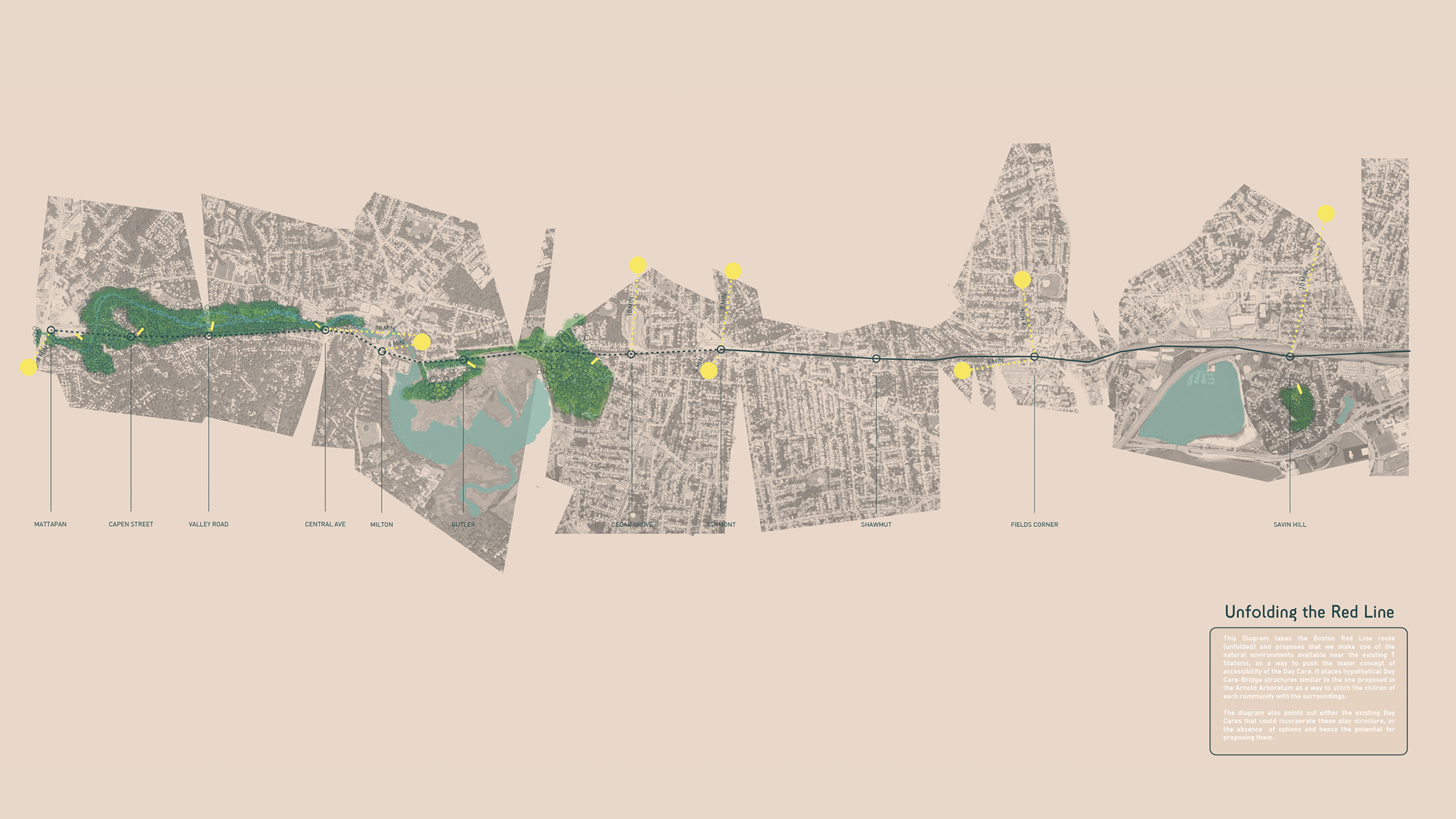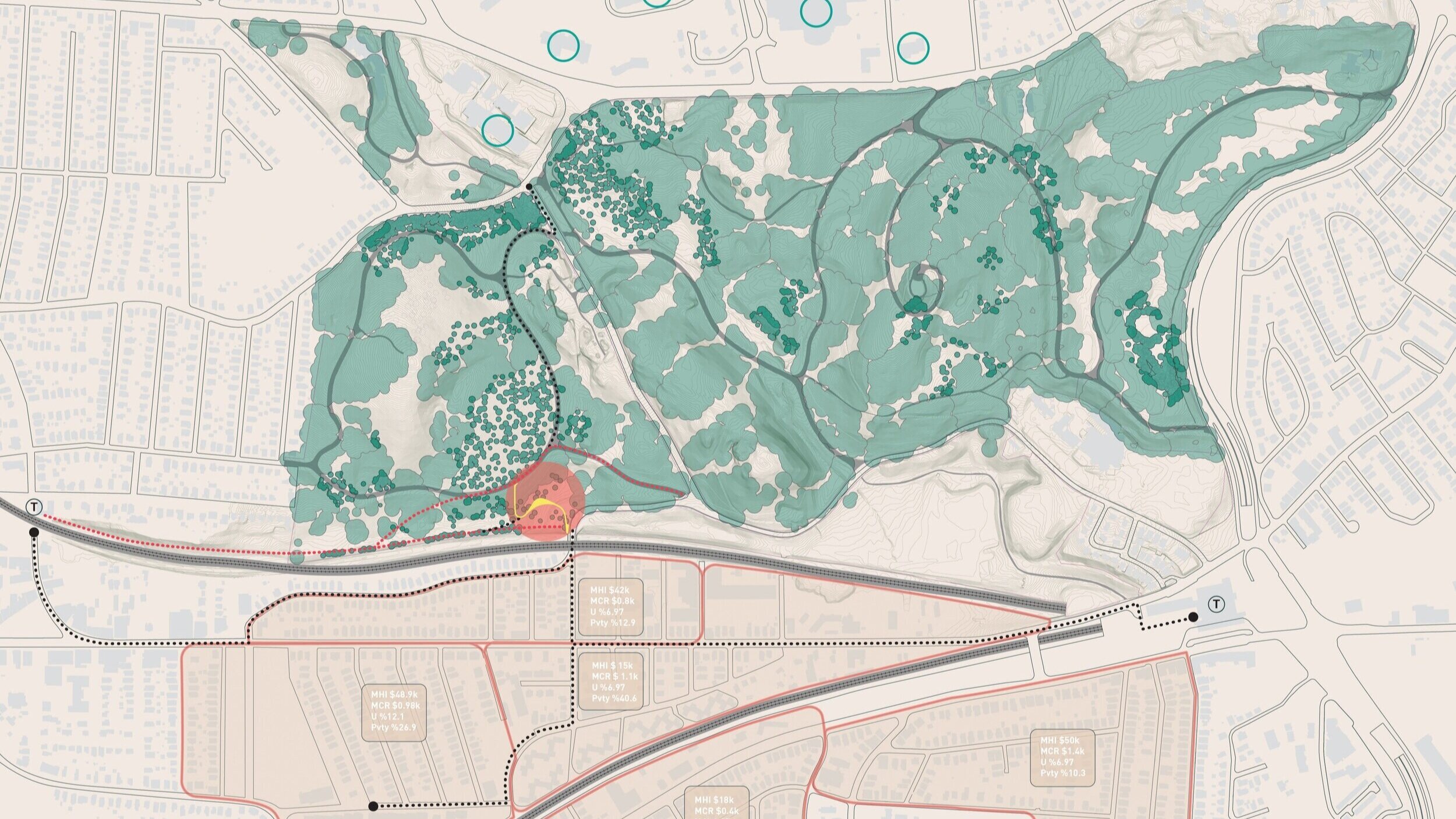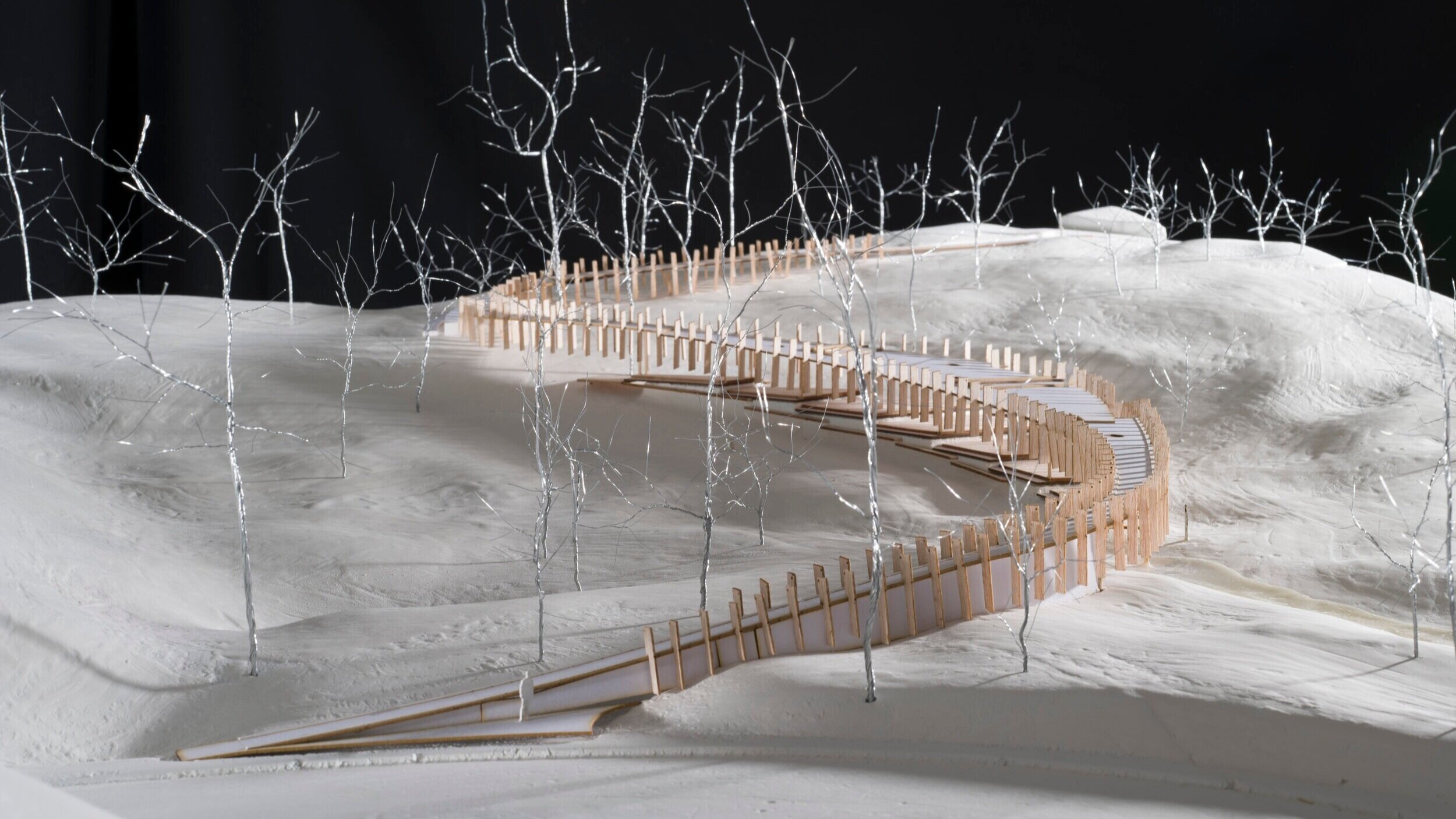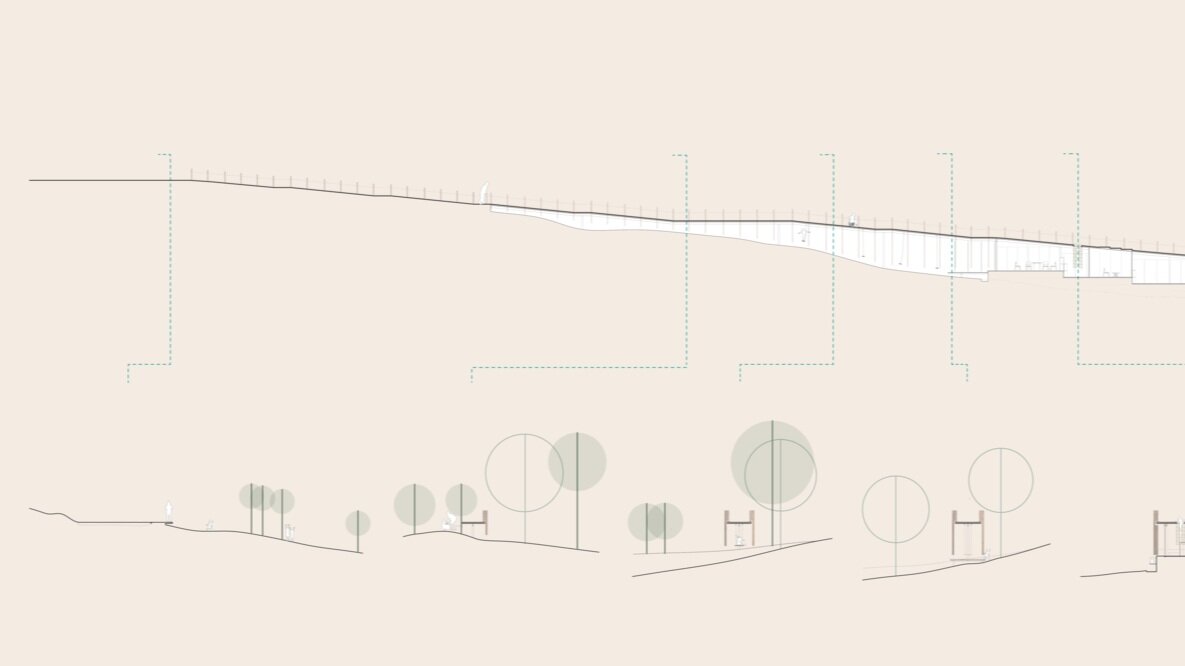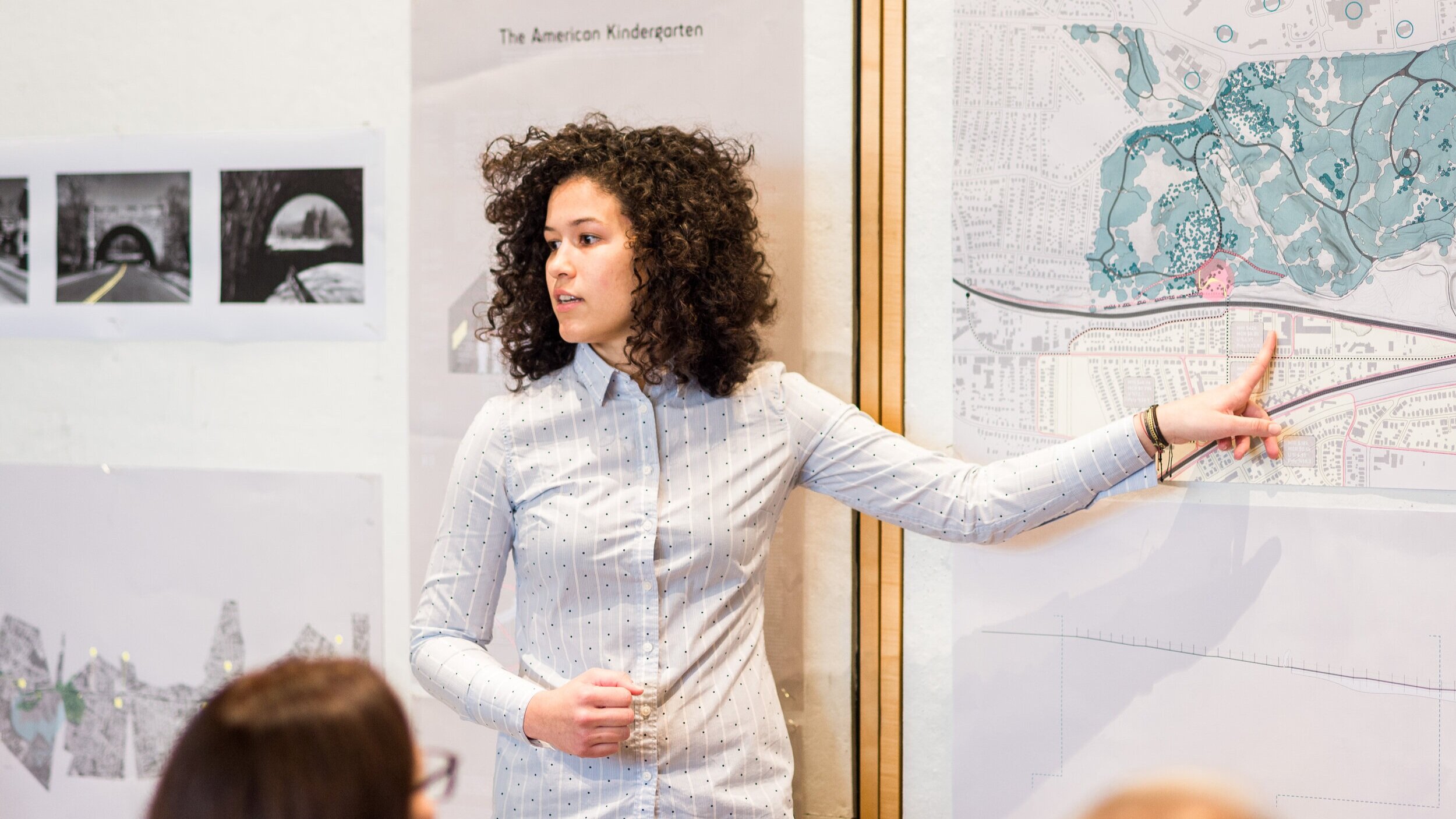the american kindergarten
Arnold Arboretum - Boston, Massachusetts 2017
MIT School of Architecture and Planning
Spring studio organized and led by Prof. Lorena Bello, in collaboration with Takaharu Tezuka
This project explores new possibilities for integrating child care to public education, by analyzing and questioning the building code and our conceptions of what a children-appropriate space is.
Affordability and accessibility were big issues in coming up with a viable proposal. The studio looked at the history of nature kindergartens in Europe, their multiple variations, and current nature school models in the US as interesting, yet valid ways of offering early development and education. In these alternative schools, nature serves as a comprehensive classroom to explore, learn, and grow physically and intellectually. Therefore, we propose that by taking over underused green spaces along Boston’s T lines and building very simple shelter-like structures, the City could establish a network of affordable nature kindergartens to impact and every child and family in need of these services, but specially low-income communities. The proxy master plan set in the Arnold Arboretum shows an instance of the plan in which the location of the school tries to benefit low-income communities in Roslindale, and connect them with other areas around, and hence separated by the Arnold Arboretum.
But the project also focuses on re-thinking early-year development of children in a risk-averse society. Re-staging the classroom within nature, and encouraging children to assess danger is integral to the proposal.
© Danniely Staback 2020 unless otherwise noted.
